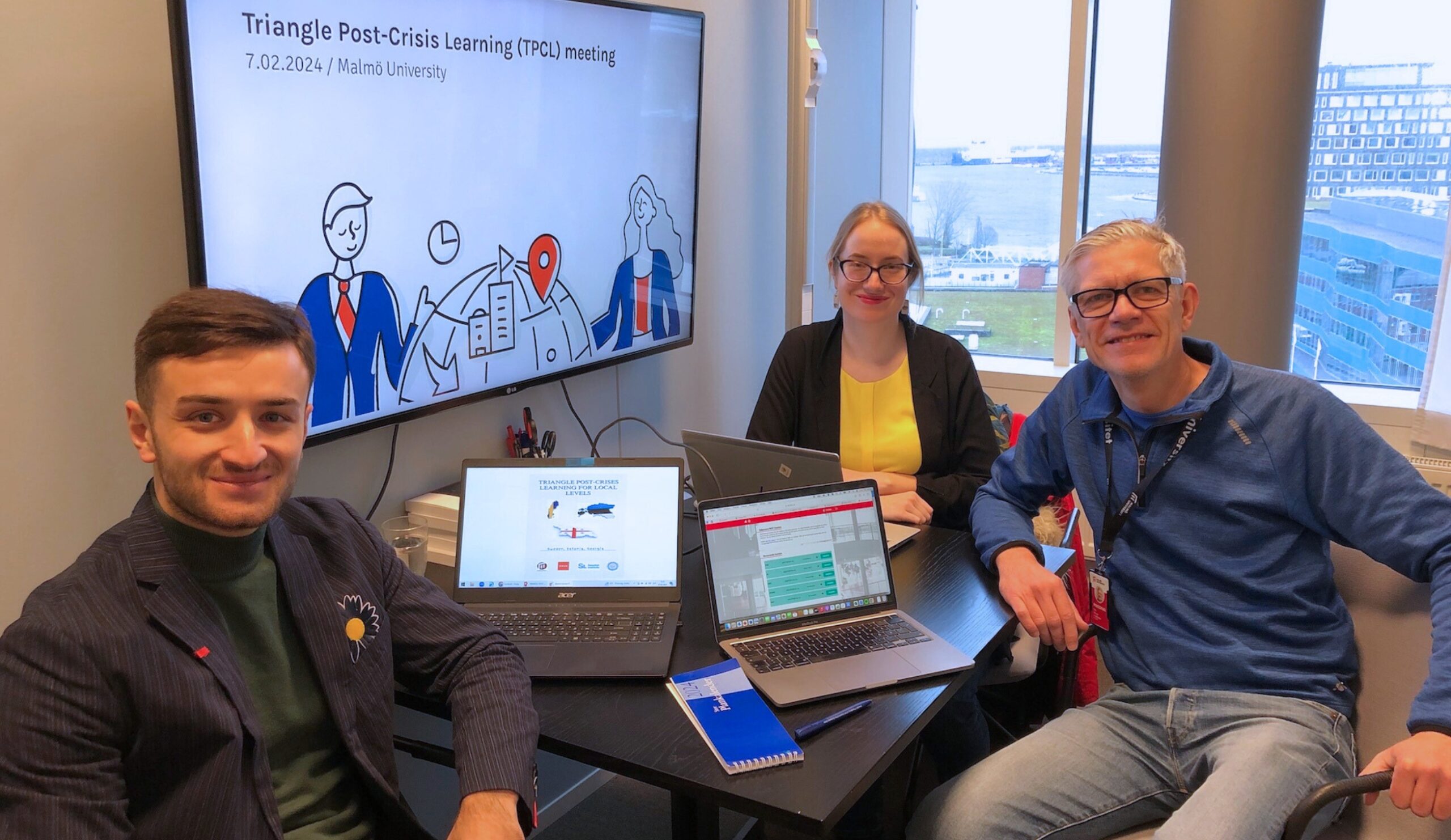
We finalised the schedule and content of the TPCL project activities in Malmö
We met on 6-8 February at Malmö University to finalise the details of the activities and the final timetable of the Swedish-Georgian-Estonian trilateral TPCL (Triangle Post-Crisis Learning) project. The aim of the project is to bring together local crisis practitioners from the three countries and, through networking and exchange of experiences, to identify both common and nationally different factors that influence crisis learning at local level.
While crises are most often seen as active crisis management, or prevention, the crisis management lifecycle also involves looking back on crises and learning from what has happened. “Learning from crises is just as important as active crisis management itself – without learning lessons, it is very difficult to deal more effectively with the next crisis,” said the represententive of the Estonian project partner Anne-May Nagel, co-founder of the Crisis Research Centre. “Another important question is how to ensure cross-organisational learning from crises – it is not enough for the crisis manager to simply be aware of what has happened and the necessary steps to take. The question is how the organisation as a whole can become more resilient to future crises,” she added.
In many crises, the heavy burden of crisis management falls on the local level. “The activities of this project focus on empowering crisis workers at the local level, as they play a crucial, and often leading, role in crisis management. There is an increasing emphasis on capacity building at the local level, but it is also important to look at what is happening within the system,” said Tom Nilsson the representative of the Swedish project partner, Malmö University.
As a result of the project, a network of post-crisis learning facilitators will be established. “The exchange of experiences will also allow the project to create a comparative overview of the experiences of the three countries. It will be very interesting to see whether and to what extent the factors influencing the post-crisis phase differ between countries or are similar,” said Giga Phartenadze, representative of the Georgian partner NGO Youth Supreme Council.
In collaboration with Malmö University and our Georgian partner NGO Youth Supreme Council (დასავლეთის განვითარების ცენტრი), we are implementing a project aimed at creating a network to promote post-crisis leadership at local level. To this end, we are bringing together local crisis managers from Estonia, Georgia and Sweden to exchange experiences and find solutions to common problems in future cooperation.
The TPCL project is funded by the Swedish Institute (Svenska institutet).
Jaga postitust:
